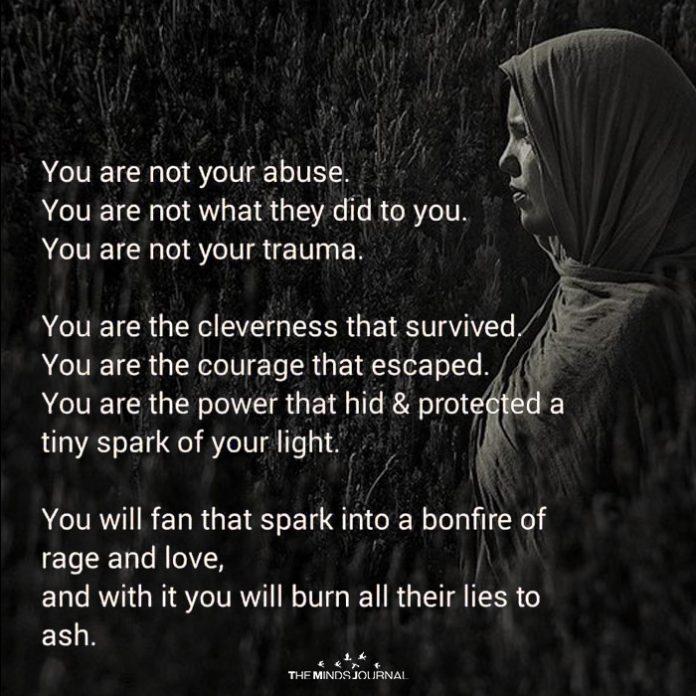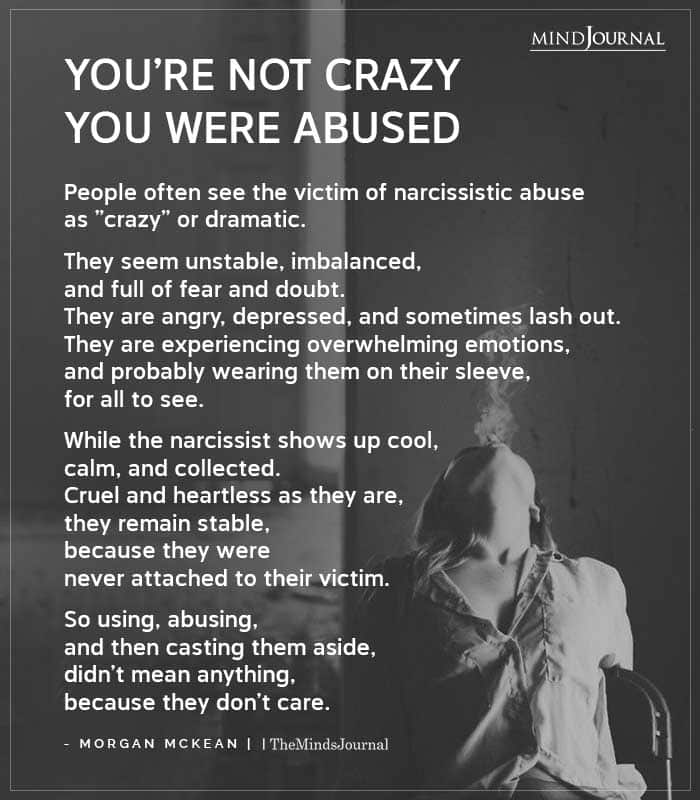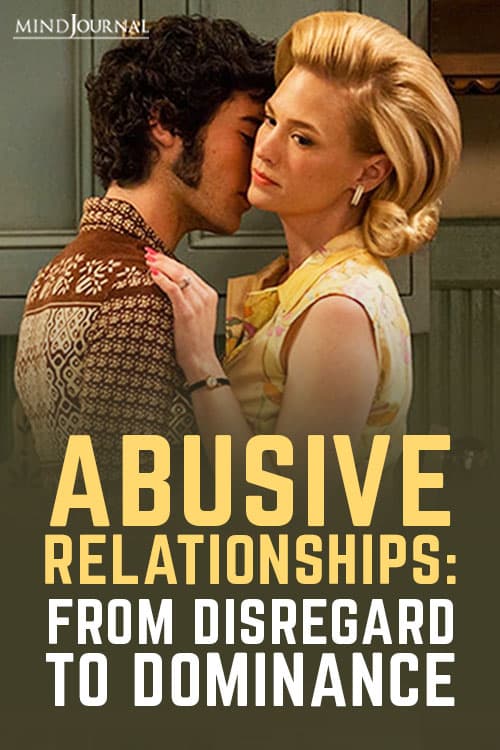The journey from physical or emotional abuse to healing is not made through an easy path. It will surely be a challenge to get your self-esteem and confidence back so that you can start loving yourself again. Once you know the secrets to healing yourself, you will feel motivated and empowered to find the light and make your future brighter in your life after an abusive relationship.
While certain wounds are healing, different ones—wounds hidden by the relationship itself—erupt in agony.
Seven Truths About Life After An Abusive Relationship That Stay Mostly In The Shadows.
Looking from the outside, you would think when someone finally escapes an abusive relationship, the worst is over. No more torture. No more hell. No more emotional blackmail or physical violence. And with the source of the hurt removed, healing can begin.
But after the external danger is gone, and the abuser is (at least physically) out of the picture, the survivor’s internal journey is only beginning. And parts of it can, surprisingly, be tougher and more painful, in a way, than the suffering they endured at the hands of their tormentor.
While certain wounds are healing, different ones—wounds hidden by the relationship itself—erupt in agony, not only endangering recovery but also making the survivor wonder if getting out was really worth it.
This is one reason it takes the average survivor of intimate partner violence seven times to leave for good. And it’s one reason most people have no idea why it takes so long to heal.
Read: Life After Divorce: Why You Must Start Over and Reinvent Yourself
Here are seven unspoken (or rarely spoken) truths about the unique challenges survivors face after they’ve gotten out.
1. You Have To Stop Living In Denial.
It requires completely rewriting your self-concept to include your victimization without allowing yourself to become a victim.

After you’re out and the past abuse is out in the open, you are forced to acknowledge it instead of pretending, at least on some level, that it wasn’t happening. This requires you to integrate the awful things that happened to you into who you are, without letting them define you. It’s way beyond reinventing yourself by changing careers or going through a massive paradigm shift.
It requires completely rewriting your self-concept to include your victimization without allowing yourself to become a victim. There is a kind of sleight of hand involved in this similar to when the magician runs the knives through the lady in the box but doesn’t actually cut her, because letting go of one self-concept (in which you’ve invested months or years of your life) before the new one is fully formed requires an act of faith.
2. You Have To Walk Away—And Stay Away—From Something You Believed Was Love.
How can you pine for someone who hurt you?
No matter how you look at it, this means heartbreak. Loss of innocence. Shattered hopes and dreams. And unbearable loneliness. How can you pine for someone who hurt you? How can you long to return even though you know it’s the worst possible thing you can do? Because you didn’t want to let go of love, or what you convinced yourself was love, or what some part of you still sees as a chance for love.
And because your feelings don’t change the second you decide you can’t live with a person. You may flip from love to hate, but the intensity is no different, and in many cases, you (or a part of you that you hate) may still love that person, even though you know he or she is unhealthy and unsafe. You wanted it to be better, not over. You had no choice, and yet, your choice was terrifyingly difficult.
Read: Emotionally Overwhelmed or Feeling Trapped In An Abusive Relationship? Here’s What You Can Do
3. You Have To Unlearn Your Unhealthy Coping Strategies.
You learned to be submissive and silent, to second- or even third-guess yourself, to start every sentence with “I’m sorry.”
You learned every trick to try to keep your abuser happy, or at least to avoid triggering his or her rage. You learned to be submissive and silent, to second- or even third-guess yourself, to start every sentence with “I’m sorry.” You learned to walk around minefields and stay out of the line of fire.

To tiptoe around insecurities, walk delicately on eggshells, and act as if parts of your—needs, desires, dreams—didn’t exist. You learned to diminish your own value and to accept utterly unacceptable treatment. The mind-bends you went through to achieve a modicum of harmony and keep yourself—and perhaps your children—safe from harm—are staggering.
And they’re all not only useless but counterproductive and unhealthy in a healthy supportive relationship. So you become a relationship novice again.
4. You Have To Repair Broken Bonds With Family And Friends.
Some relationships may never regain the closeness and intimacy they once had.
This is one of the hardest tasks a survivor faces, particularly if you denied the abuse and defended your abuser while it was happening. These critical relationships are damaged, and even though your family and friends may be tremendously supportive, you may not be aware of the extent of their pain—and they may not want to burden you with it during the early part of your recovery.
Some relationships may never regain the closeness and intimacy they once had, especially if you—or your abuser through you—pushed someone away. Your old life doesn’t just snap back into place immediately. You changed, and others changed along with you.
Restoring broken relationships is hard work, and focusing on finding a new way to enjoy family and old friends will be more productive than trying to go back to the way things were before.
5. You Have To Forgive Yourself.
Forgiving yourself for abandoning yourself, and for the pain that abandonment caused for you and other people you love is different.
This sounds easy because you forgive yourself for stuff all the time. We all do. You forgive yourself for being late or screwing up at work. You rationalize the time you waste on unproductive activities (e.g., Facebook). You find ways to let yourself off the hook, because … because it feels good.
But forgiving yourself for abandoning yourself, and for the pain that abandonment caused for you and other people you love is different. You obsessively try to understand why you got into an abusive relationship—what was it about you that made you vulnerable, what was it about your abuser that seemed so incredibly appealing.
You blame yourself, your childhood, your abuser’s childhood … and yourself again until you come to a place of true forgiveness and acceptance. “I could have made a healthier choice. But I didn’t. And that’s OK. I lost a lot. But I’m going to be OK. I’m going to be OK, and I’m going to move on.”
Read: 15 Ways To Rebuild Your Life When You’re Broken Inside
6. You Have To Start Loving Yourself Again.
The hardest thing is squaring the hatred you were subjected to with the idea that you are worthy of love.
When you hate yourself for what you feel you allowed to happen to you, it’s hard to find much self-love. And self-love wasn’t exactly encouraged by your abuser either. You were likely told repeatedly you weren’t lovable—not by anyone except your abuser. So now, who will love you?
The answer has to be—you first. Restoring your healthy esteem for yourself must follow self-forgiveness and will allow you to start drawing boundaries that protect you from further harm.
A self-care regimen, maintained consistently, can create the feeling of self-love even if you’re not generating it inside. Also, if you are a person of faith, remembering that God loves you can help you through the darkest spaces. The hardest thing is squaring the hatred you were subjected to with the idea that you are worthy of love. The trick? It’s both/and.
7. You Have To Deal With A Host Of Naive, Insensitive, Self-Righteous, But Mostly Well-Meaning People.
Bad advice from good people is still bad advice.
Everyone who hasn’t lived through an abusive relationship has answers—and questions—for you, especially if they read something on the Internet. And anyone who has been through one, or knows someone who has, listens—quietly and patiently.
It’s hard enough to share your truth with yourself (see #1), but to share it with people who don’t get it or think they know how to solve your problems is frustrating and painful. When someone says, “Come on. You’re still young.
You have your whole life in front of you,” you don’t want to be rude and say, “Yes, but I’m stinging from the loss of the 15 years I squandered.” But bad advice from good people is still bad advice.
Read: 13 Things to Remember When Life Gets Rough
This is why it’s so important to find communities of survivors, to talk to people who have experienced the same things you have. It is also crucial to choose carefully the people with whom you share your truth and only do so with those you can trust fully and you know will not use it to hurt you.
The unspoken secret about life after abuse is that, in many ways, it’s harder than before. Because the seven things listed, along with a whole lot of others, make for excruciating work. And when you see that work as the requirement for leaving, you can see why it’s so hard for people to leave abusive relationships.
Written by Thomas G. Fiffer
Originally appeared in The Good Men Project












Leave a Reply